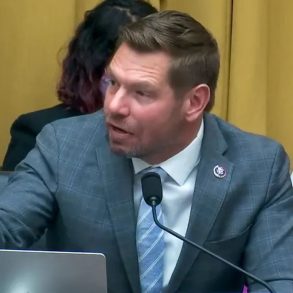Secretary of State Marco Rubio has announced the closure of the State Department’s Counter Foreign Information Manipulation and Interference office, a decision that ends a long-standing and highly controversial program once known as the Global Engagement Center (GEC). The move marks a significant shift in how the U.S. government approaches foreign disinformation and raises new questions about the balance between national security and free speech.
Biden administration’s Disinformation Governance Board hired Nina Jankowicz, who appeared to view a great deal of conservative thought as “disinformation.” This organization became a tool for censorship at the whim of the Democratic Party.
What Was the Global Engagement Center?
The Global Engagement Center was originally created in 2016 by executive order during the Obama administration. Its initial mission focused on countering the online propaganda of terrorist organizations like ISIS, which were using the internet to recruit fighters and spread extremist ideologies. Over time, however, the office’s role changed dramatically.
Congress expanded the GEC’s authority to track and combat disinformation from foreign governments, especially from Russia and China. The office claimed to monitor and expose malign foreign influence efforts that targeted democratic institutions in the United States and abroad.
But critics said that the center went far beyond its original purpose. Instead of just identifying foreign propaganda, the office began funding outside organizations that flagged online content they labeled as disinformation—including posts by American citizens
Rubio said the office had strayed far from its original mission and had instead become a tool to silence political dissent. “Over the last decade, Americans have been slandered, fired, charged, and even jailed for simply voicing their opinions. That ends today,” Rubio posted on X, formerly known as Twitter. He added that the censorship efforts were “antithetical to the very principles we should be upholding and inconceivable it was taking place in America.”
According to Rubio, the office cost taxpayers more than $50 million per year and funded activities that directly harmed American citizens. “American taxpayers, through the State Department, were paying groups to attack Americans and to try to silence the voice of Americans,” he said. “These weren’t just a label they put on people. Some of these people got de-platformed. They got taken down. They couldn’t communicate. So it was outrageous.”
The decision also includes the elimination of the office’s 50 full-time staff positions. Rubio explained that while the State Department will continue to have a messaging capability, it will now focus on promoting free speech and pro-American values rather than monitoring domestic conversations online.
Rubio’s decision drew immediate praise from conservative voices, particularly from former State Department official Mike Benz, a vocal critic of government-led censorship. Benz celebrated the move, saying the GEC had long been involved in silencing dissenting voices on the internet under the excuse of fighting disinformation.
Rubio also wrote an op-ed for The Federalist, a conservative news site that had itself been targeted by groups funded by the GEC. In it, he emphasized that the GEC had transformed from a counterterrorism office into one that tried to police what Americans could and could not say online. “We ended government-sponsored censorship in the United States through the State Department,” he said during a live interview with Benz.
The GEC had previously supported groups like the Global Disinformation Index and NewsGuard, which rated news sites on credibility. Critics argue these groups disproportionately flagged conservative outlets and worked with advertisers to financially punish them. This included encouraging companies not to place ads on websites labeled as misinformation.
Legal and Political Backlash
The GEC’s actions triggered several lawsuits from conservative media companies, including The Federalist and The Daily Wire, who claimed that the office’s funding of certain watchdog groups was being used to suppress their voices. While these lawsuits have not always succeeded in court, the allegations fueled a growing effort among Republicans to strip the GEC of its funding and authority.
In late 2024, Congress removed the office’s funding from the final government budget, and the Biden administration responded by restructuring the GEC under a new name: the Counter Foreign Information Manipulation and Interference office. That rebranding did not satisfy critics, and Rubio’s decision now finalizes the office’s termination.
Critics Warn of National Security Risks
While conservatives praised the decision, others warned that the move could leave the United States more vulnerable to foreign disinformation. Supporters of the GEC, including Senators Chris Murphy (D-Connecticut) and John Cornyn (R-Texas), said the office had played an important role in exposing foreign propaganda, including a major Russian disinformation campaign in Africa. In 2023, the office even helped create an international agreement backed by over 20 countries to jointly combat foreign interference, though the agreement has since been removed from the State Department website.
A current State Department official, speaking anonymously, said, “The Kremlin and Chinese Communist Party are cheering today.” The official continued, “Our adversaries spread disinformation deliberately meant to deceive and divide communities and nations and to attack the foundations of democratic societies. Yet another fissure has been created in our national security that makes America even more vulnerable.”
Musk’s Role and Broader Government Reform
Tech entrepreneur Elon Musk, who now heads the Department of Government Efficiency, also supported the closure. In 2023, Musk labeled the GEC as “the worst offender in U.S. government censorship and media manipulation.” The Department of Government Efficiency has been aggressively downsizing federal agencies, including the dismantling of the U.S. Agency for International Development.
Rubio emphasized that he intends to review the office’s past activities more deeply. “If we could somehow with internal review, create a linkage between some information that came from something the State Department paid for and an actual aggrieved party, that’s what’s important,” he said. “We didn’t want to wait for that to take action. We know enough to already act, but we obviously want to know the depth and the scope of this.”
The closing of the office signals a broader realignment under the Trump administration in how the federal government addresses online speech. Rubio said that the best way to combat misinformation is not through censorship but through more free speech. “The best way to counter disinformation is free speech, is to make sure what’s true has an equal or greater opportunity to communicate as what’s not true. We’ve learned that the hard way.”
He also warned against following the example of European countries that are cracking down on internet speech. “Free speech is a valuable tool for countering disinformation,” Rubio added, “especially when the mainstream media gets things wrong in their coverage of the Trump administration.”
As the State Department transitions away from the GEC’s framework, Rubio has promised that its future messaging efforts will no longer involve suppressing speech but will instead focus on “supporting freedom of expression and standing up for American values around the world.”
NP Editor: Do we need to track disinformation? Certainly. Does this capability need to reside in the State Department? No, they are not qualified. Is anyone qualified? Perhaps the intelligence community, but even they would struggle in this mission.








